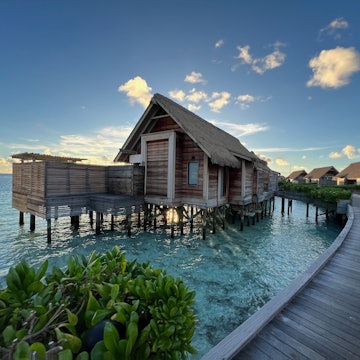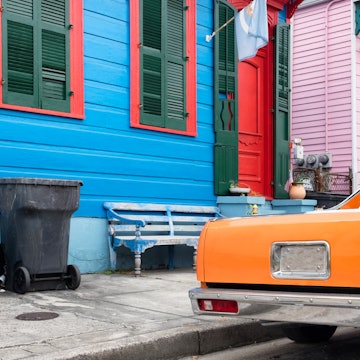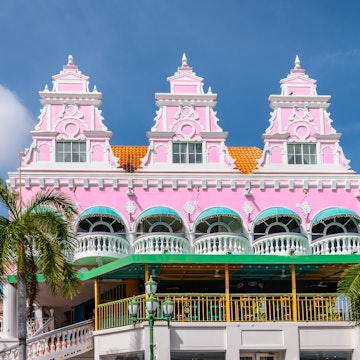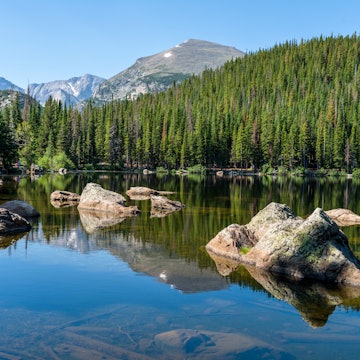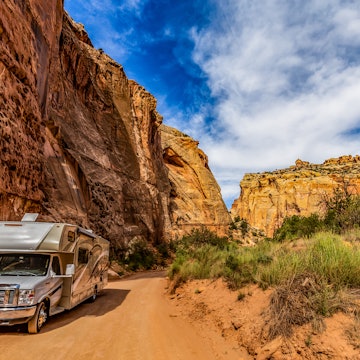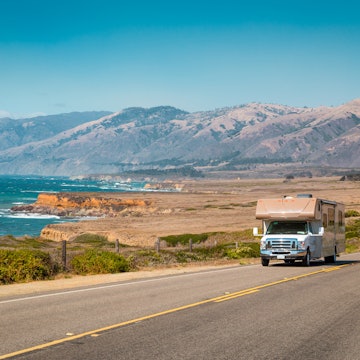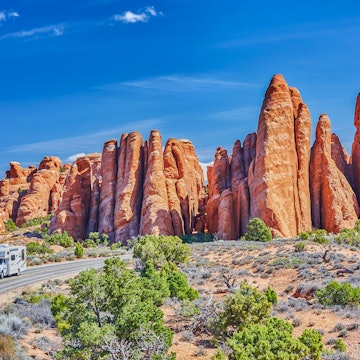
Celebrate Pride in 2025 at the USA's 10 best LGBTIQ+ neighborhoods

Apr 28, 2025 • 6 min read

Los Angeles Pride Parade in West Hollywood, CA. GrandAve/Shutterstock
When visting a new city, few LGBTIQ+ travelers can resist making a beeline to the local gayborhood. The sight of rainbow flags and same-sex couples holding hands feels both familiar and liberating. For many, these destinations are welcoming, safe havens – friendly places where a spirit of collective community abides.
Often these districts often have a rich gay history in their bars, streets, shops and local landmarks, too, inviting visitors to join the local legacy of queer culture. And they’re awfully fun too, with festive Pride parties and colorful events all year long. Here’s a look at the best LGBTIQ+ neighborhoods in the US and how they're celebrating Pride in 2025.
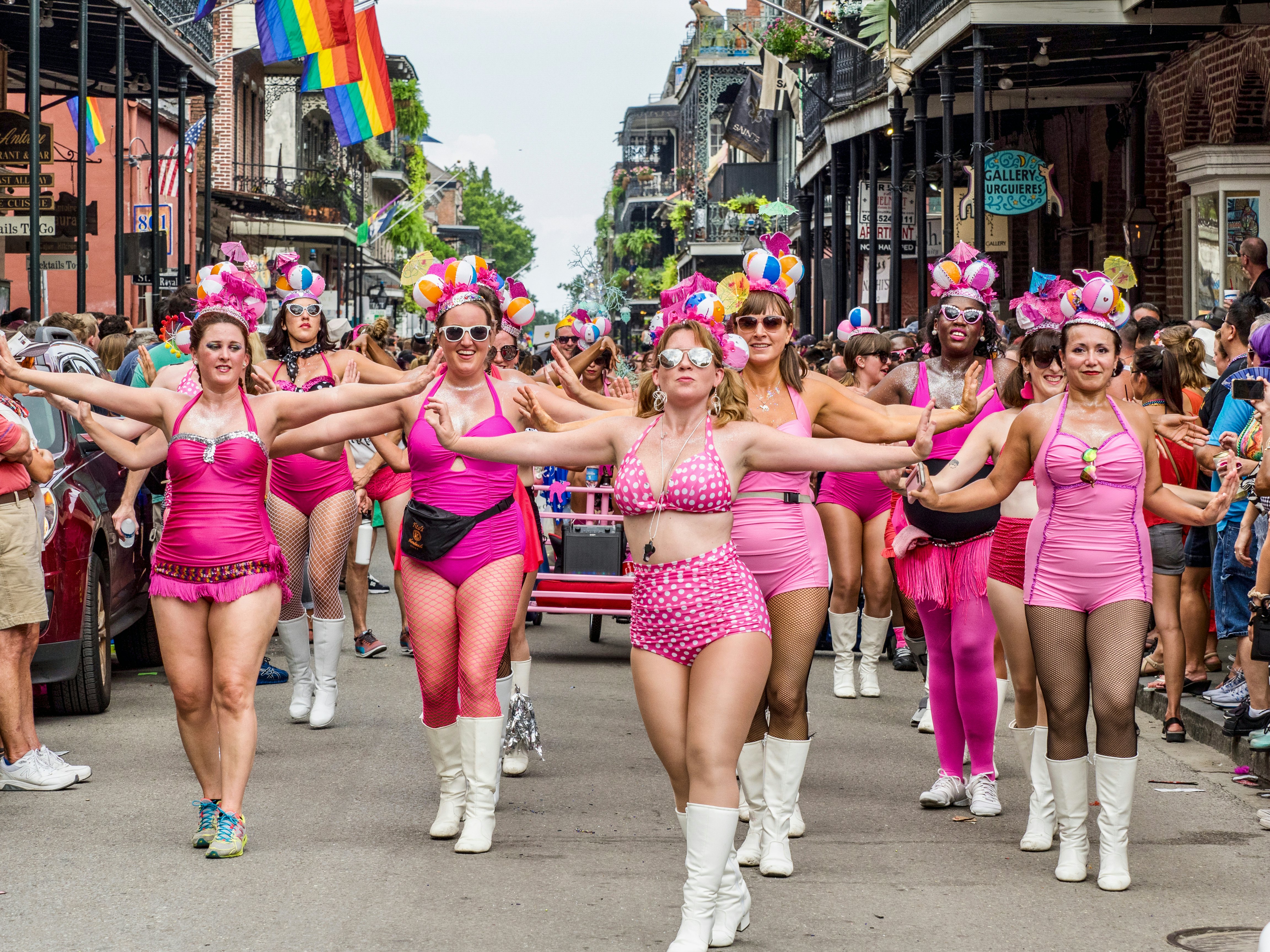
1. Bywater, New Orleans, Louisiana
New Orleans’ funky Bywater and adjacent Marigny neighborhoods seem to embody the best of NOLA’s old-school, laissez-faire vibes, including its effortless queer style. While the French Quarter has several fun LGBTIQ+ bars and clubs, it’s well worth the walk east, past Frenchmen St, to reach the Bywater’s classic dives, hidden courtyard eateries, vintage shops and the always-worthwhile, gay-owned Country Club (be sure to reserve early for the smashing weekend drag brunches here).
Pride 2025: The steamy Southern heat will have set in for New Orleans Pride weekend on June 13–15. Events through the month include DJ sets, Drag Queen Story Time on Family Equality Day and a gay ghosts walking tour, before the Pride parade and concert on June 14.
2. The Gayborhood, Philadelphia, Pennsylvania
Philadelphia’s dynamic LGBTIQ+ community befits a city nicknamed “the cradle of liberty.” The city’s downtown Gayborhood (yes, that’s really what locals call it) is home to gay-owned bars, restaurants and shops, including Philly AIDS Thrift, the corner store that once housed famous queer bookstore Giovanni’s Room (look for the historic marker out front).
Philly Pride has taken a renewed approach to its annual festival and march to be more intentionally inclusive of trans folx as well as people of color. Indeed, the city’s local queer community remains one of the country’s most progressive and vibrant.
Pride 2025: Philly Pride Weekend – a program of social-justice organization Galaei – is a citywide celebration held May 30 to June 1, with a 600ft-long Pride flag traveling through the city, and a night of art, music and performances at Philadelphia Museum of Art, culminating in the Pride March.
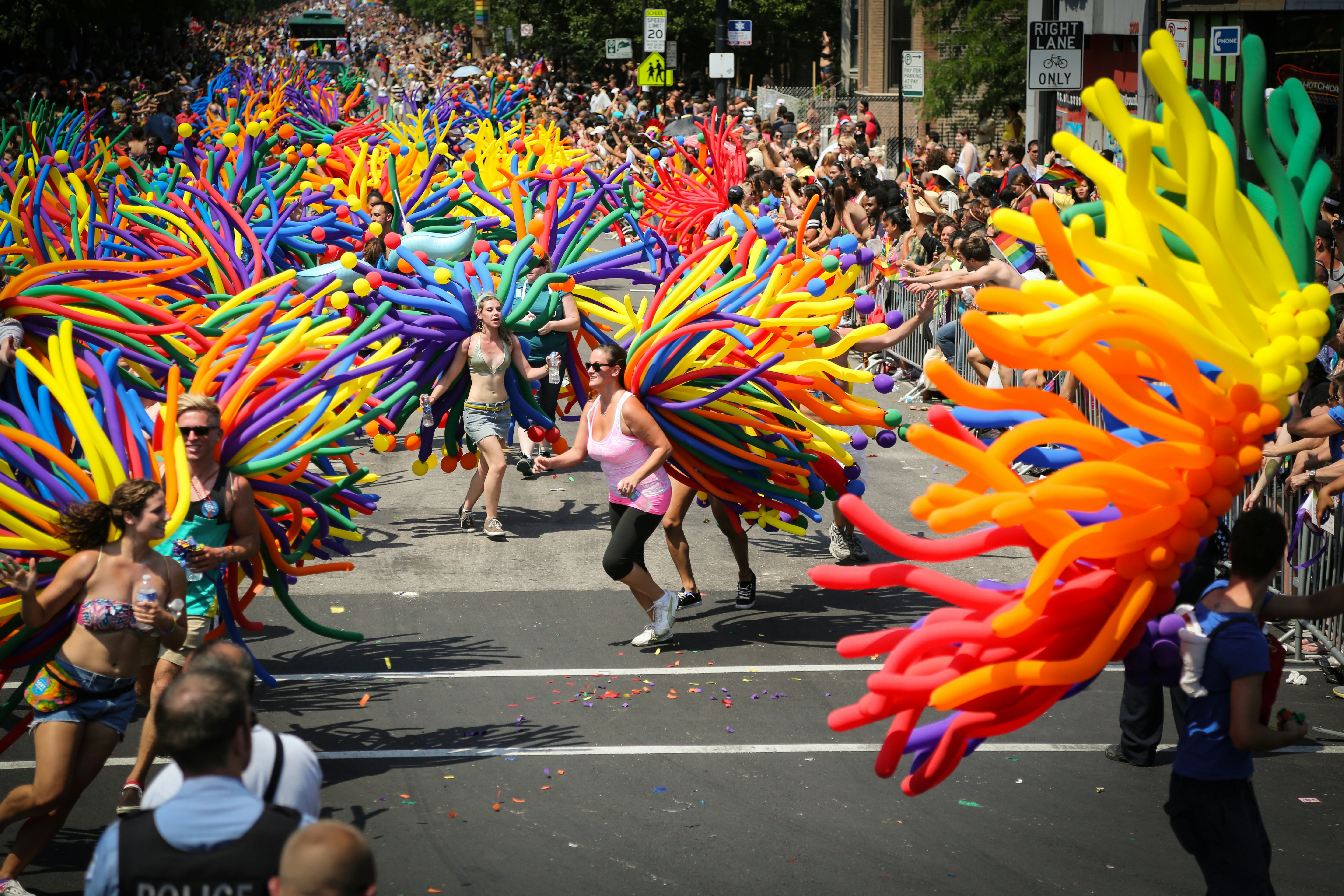
3. Northalsted, Chicago, Illinois
Whether you know it as Boystown or Northalsted, the central-Chicago neighborhood anchored by Halsted St is where you’ll find many of the city’s LGBTIQ+ attractions. Its standout feature is the Legacy Walk, a mile-long series of markers with memorial plaques commemorating the life and work of queer-community heroes and leaders. In this historic gay district, you’ll find indie boutiques, cafes and hit hangouts like Roscoe’s, Sidetrack and the Kit Kat Lounge, where nightly drag shows keep the crowds whooping.
Pride 2025: Chicago Pride descends on Halsted St with the annual festival June 21–22, and the annual parade on June 29, with a slew of other LGBTIQ+ events happening all month.
4. Capitol Hill, Denver, Colorado
Just up from downtown Denver is Capitol Hill, the city’s LGBTIQ+ neighborhood. It’s the place to see what’s on at the Center on Colfax, and where gay-friendly shops and eateries pepper the blocks on and around East Colfax. There are a few Cap Hill musts for LGBTIQ+ visitors, including gay-owned Hamburger Mary’s with its zesty queens and bear-inspired Denver Sweet bar.
Pride 2025: The lead-up to Denver’s weekend Pride Fest features culture, history and plenty of dancing, all ahead of the big Civic Center Park festival and parade on June 28–29.

5. The Castro, San Francisco, California
One of America’s first gay neighborhoods blossomed in San Francisco's Castro in the decades before Stonewall, and remains a vivid LGBTIQ+ hub for the whole world. The area has evolved a lot since the sexy 1960s, and local queer history is commemorated at the Castro’s GLBT Historical Society Museum, on Castro and Market Sts’ Rainbow Honor Walk, on walking tours and at other historic spots. Head here to picnic with seemingly half the city in Mission Dolores Park, sip drinks at historic Twin Peaks Tavern or catch a film or performance at the landmark Castro Theatre once its glow-up is complete.
Pride 2025: The annual San Francisco Pride Celebration has a street fair and events across many stages in the Civic Center on June 28–29, with the Parade splashing through downtown on Sunday June 29. This year’s theme: Queer Joy is Resistance.
6. West Hollywood, Los Angeles, California
Locals will inevitably inform you that West Hollywood is its own, compact city (with its own mayor) – even though on a map it’s in the heart of greater Los Angeles. Nevertheless, WeHo’s walkable scale, busy street life, familiar faces and beloved bars and shops are decidedly neighborhood-y, with plenty of sizzling spots to soak up the SoCal sun and watch the fashionistas flit by.
Pride 2025: WeHo Pride runs May 22 (Harvey Milk Day) to June 1, with WeHo Pride Arts Festival, the motorcycle-led Dyke March, a street fair and a lavish Sunday Pride Parade down Santa Monica Blvd.
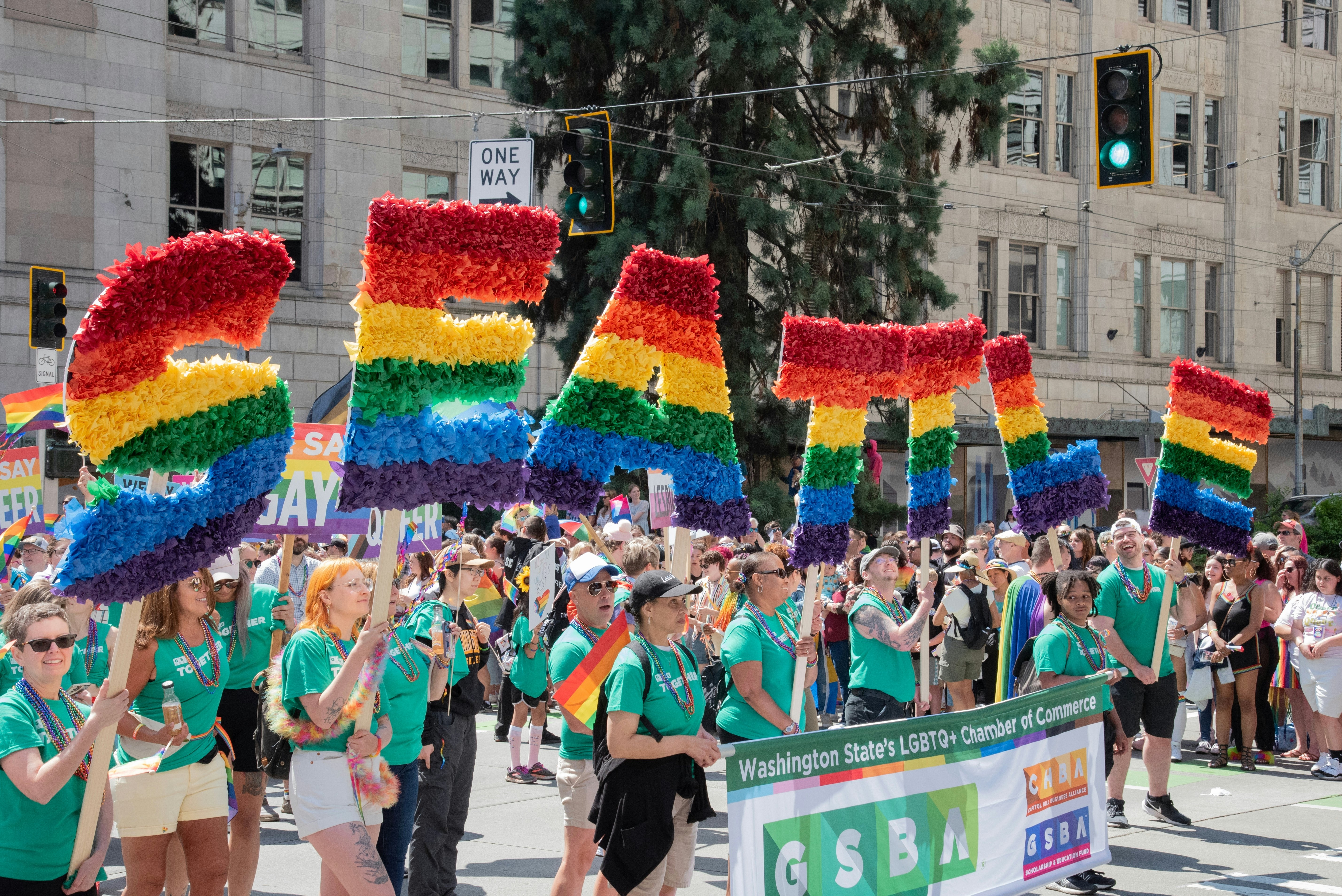
7. Capitol Hill, Seattle, Washington
The sprawl of major Seattle-based corporations has brought many changes to Capitol Hill. But this optimally located neighborhood is still home to favorite LGBTIQ+ haunts, including CC Attle’s, the Cuff and (of course) the Wildrose, Seattle’s go-to lesbian bar for over 40 years. Pop into queer-owned spots like Dough Joy and Capitol Thrill, browse books at Elliott Bay Book Company, grab brunch or cocktails at Union and top off your visit dancing all night at Neighbours.
Pride 2025: Seattle Pride kicks off with Pride in the Park festival on June 7 and ends with the annual Pride Parade, welcoming over 300,000 people, on June 29.
8. Oak Lawn, Dallas, Texas
Dallas is home to one of the most gay-proud neighborhoods in the country. With a tight-knit community and cluster of LGBTIQ+ clubs and businesses along Cedar Springs Rd, Oak Lawn feels virtually paved with rainbows. So kick up your sequined boots and go two-stepping at the Round-Up Saloon, or drop in at twin Dallas-inspired clubs JR’s and Sue Ellen’s (seriously) – one for the cowboys and one for the cowgirls, naturally.
Pride 2025: Dallas Pride celebrates to the theme "Pride is my Right" on June 14–15, with music, arts and community gatherings, topped off by the annual parade.
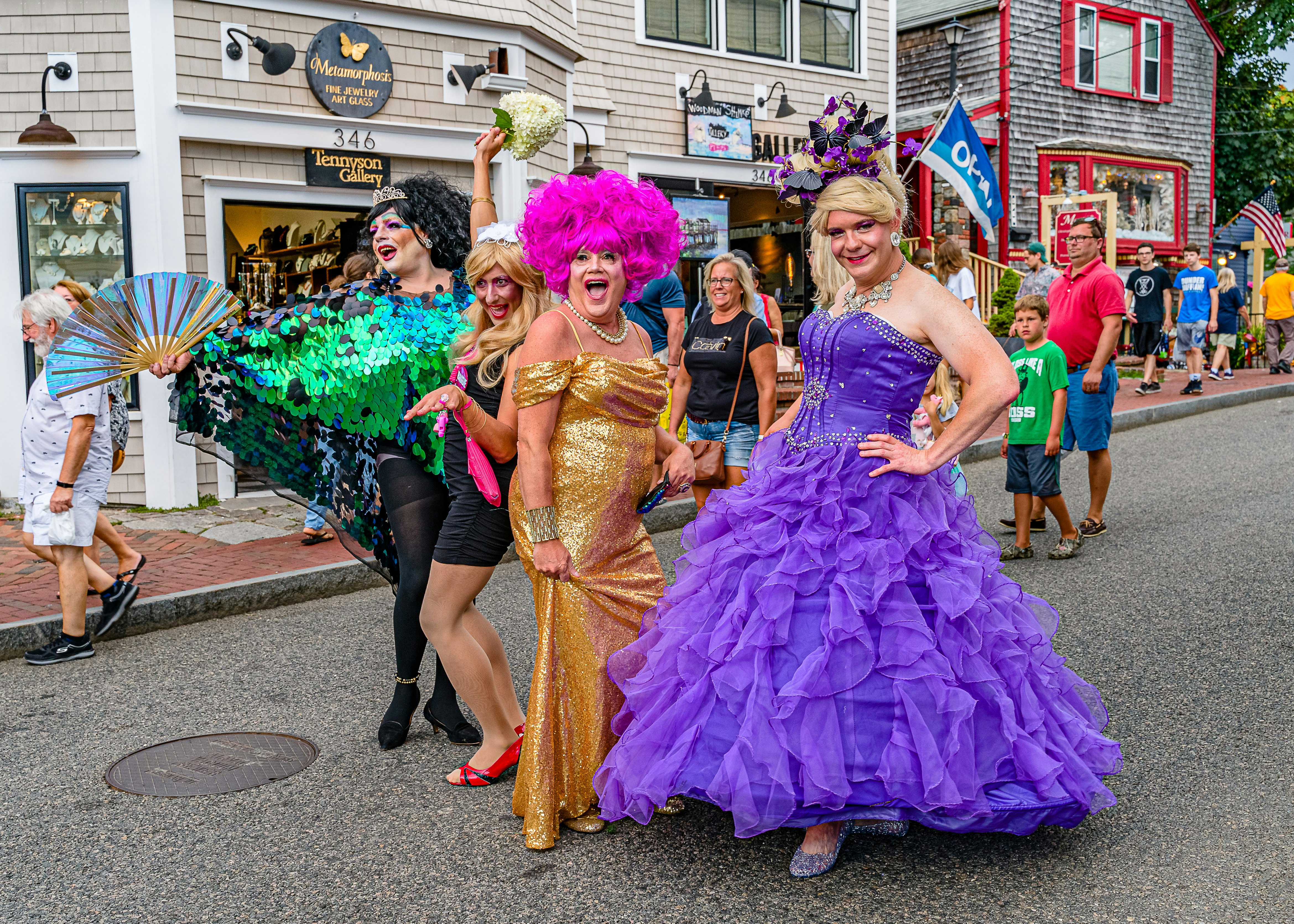
9. Provincetown, Massachusetts
Historic Provincetown occupies the very tip of Cape Cod – and it’s so small that the entire town feels more like a super-friendly Mr Roger’s Neighborhood – only bedecked with rainbow flags. A Pride event takes place at the beginning of each June – but that’s only the first of many legendary “theme weeks” that unfold through out the summer, such as Womxn of Color Weekend, Bear Week, Family Week, Girl Splash and TransWeek (previously known as Fantasia Fair, it’s taken place each October since 1975). And that’s in addition to the spate of events and community fun that unfurl throughout the year, including New England Leather Weekend, Tennessee Williams Theater Festival, LGBTIQ+ art galleries and much, much, much more.
Pride 2025: Officially, Provincetown’s 8th annual Pride celebration takes place from June 6–8. Unofficially, every single day in this New England coastal hamlet bursts LGBTIQ+ pride.
10. West Village, New York City, New York
The history of LGBTIQ+ civil rights in the USA is alive and well in one of the nation’s most vibrant and colorful neighborhoods. Occupying a prime corner of the West Village, the Stonewall National Monument includes tiny Christopher Park, home to George Segal’s striking Gay Liberation sculptures, as well as the first pole to fly a rainbow flag at a federal site. Show your pride all year with drinks at historic Julius’; flirty piano bars the Monster and Duplex; Henrietta Hudson and the Cubbyhole (two of the country’s last remaining lesbian bars); and, of course, the landmarked Stonewall Inn – where uprising on June 28, 1969 ignited a global movement.
Pride 2025: NYC Pride’s biggest celebrations kick into high gear from mid June, culminating in the annual Sunday march through Manhattan, happening this year on June 29.







